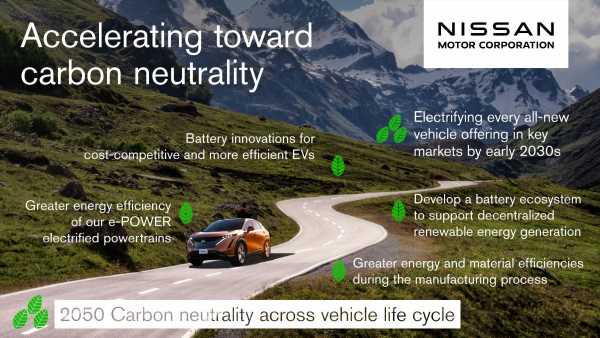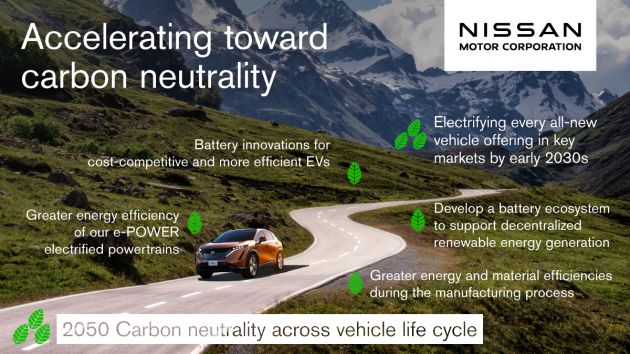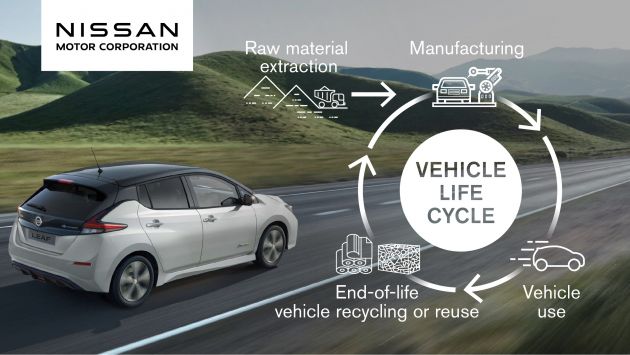Building electric cars is all well and good, but the real holy grail of sustainable vehicle manufacturing is to be carbon neutral, essentially eliminating the industry’s burden on the environment. Nissan is the latest to commit to the cause, promising carbon neutrality across its entire operation and product lifecycles by 2050, in line with the Japanese government’s own target.
Twenty-nine years may seem like a long way to go, but there’s a lot of work that needs to be done to reduce the company’s carbon footprint to zero. For a start, Nissan is planning to electrify every all-new model sold in key markets – which include Japan, China, Europe and the United States – by the early 2030s.
It also intends to further develop its e-Power range-extended electric powertrains, as well as pursuing new electric vehicle technologies like solid-state batteries in order to build cheaper and more efficient EVs. But greener cars are only part of the story – the energy used to build the cars also need to be clean, so Nissan is developing a battery ecosystem to support decentralised onsite power generation using renewable energy sources. The company expects to work with the energy sector to make power grids less polluting.
Last on the list is the Nissan Intelligent Factory initiative, a stepping stone towards increasing productivity in the vehicle assembly process. Long term, the company will strive for greater energy and material efficiencies to support its carbon neutrality ambitions.
“We’re determined to help create a carbon neutral society and accelerate the global effort against climate change,” said CEO Makoto Uchida. “Our offering in electrified vehicles will continue to expand around the world, and this will make a major contribution to Nissan becoming carbon neutral. We will continue to drive innovation that enriches people’s lives as we pursue a sustainable future for all.”
The 2050 goal builds on decades-long programmes to improve the environment and society by reducing emissions and providing electric vehicles. It supports the aims of the Paris Agreement on climate change and global progress towards carbon neutrality, also by 2050. The ambition also expands upon past initiatives under the Nissan Green Programme and the company’s ongoing work to minimise its carbon footprint.
Some of those initiatives include the introduction of the world’s first mass-market electric car, the Leaf, as well as collaborations with industry coalitions and authorities to develop charging infrastructure and raise public awareness on electric vehicles.
Nissan isn’t the only company pledging to be carbon neutral – Mercedes-Benz also wants to eliminate its carbon footprint by 2039, a full 11 years ahead of the Japanese carmaker.
Research Nissan Cars at
Related Cars for Sale on
Source: Read Full Article

















